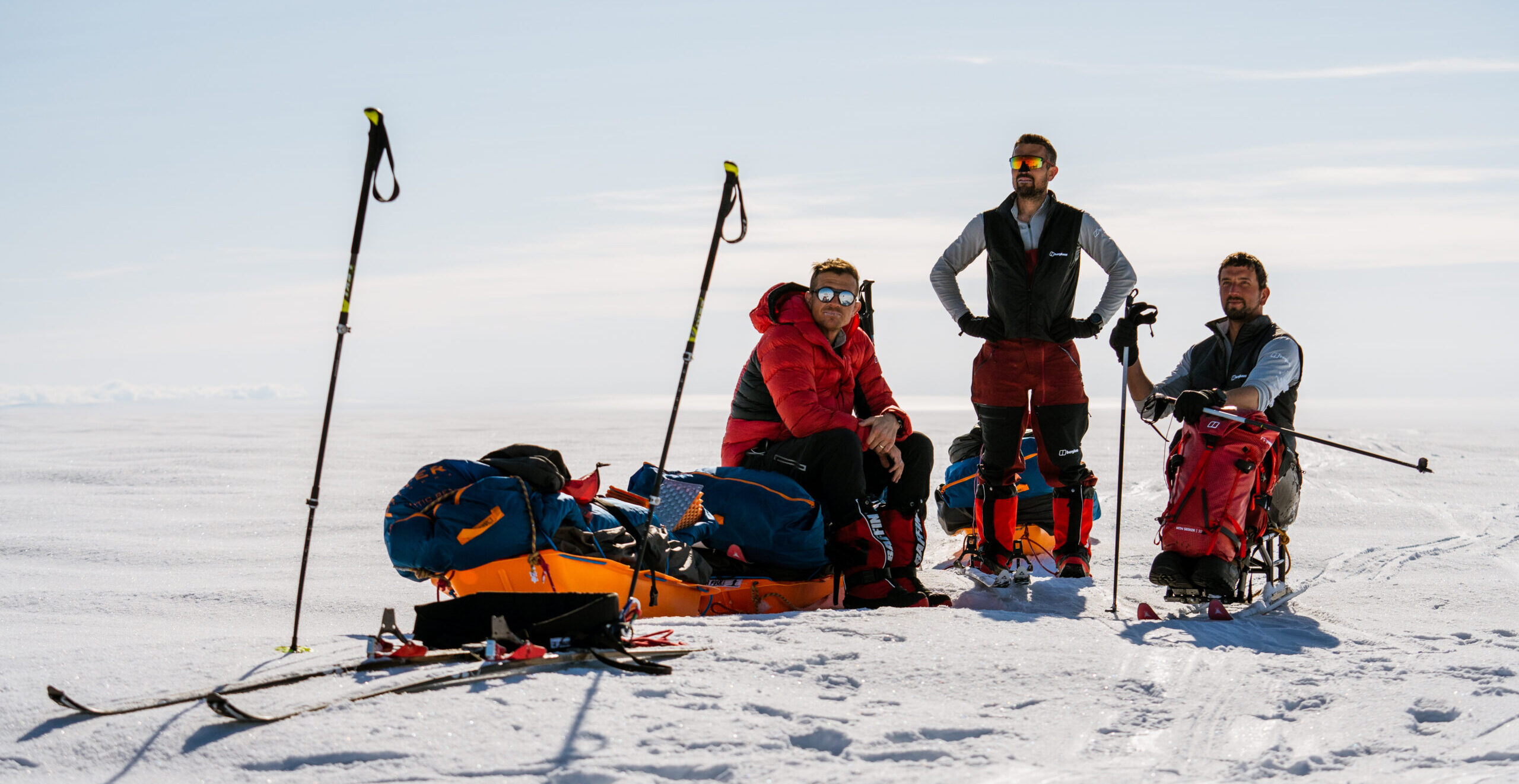Adaptive adventurer Ed Jackson is on a mission to inspire others to overcome adversity by embracing outdoor challenges.
After suffering a serious spinal cord injury in 2017 that left him partially paralysed, the former professional rugby player has tackled many formidable challenges, such as climbing Mount Snowden just a year after his injury.
Since Ed joined the Berghaus team as an ambassador, he’s made history by being part of the first fully disabled team to traverse Iceland’s Vatnajokull Glacier, Western Europe’s largest ice cap. He’s also founded the charity Millimetres to Mountains, using the transformative power of the outdoors and community to help others in their recovery journeys.
Here, he shares his purpose to make the great outdoors more open and welcoming for everyone.
What inspired you to venture into the world of exploration?
“During my rehab, I was looking for a goal and thought, ‘Given the circumstances, what’s better than a walking challenge?’ So, I decided to climb Yr Wydda (Snowdon), the highest peak in Wales. I didn’t think I’d summit, but that feeling of achieving something after feeling so useless for so long was addictive. The next thing I knew, I was in the Alps climbing something higher. I was hooked on the outdoors.”
How do you choose your expeditions and then prepare for them?
“Although it often starts with a crazy idea between friends, there’s always a purpose behind it. One of my aims is to make the outdoors more accessible and inspire people to get outside. Hopefully, seeing me hobbling up the side of a mountain rather than a professional climber positively affects others in a similar situation. Because I am ‘disabled’, there often isn’t a route map, so it starts off by figuring out how to adapt hiking and climbing.”
Could you describe a moment from a past adventure where you needed resilience?
“I was trying to set a new height record for someone with a spinal cord injury. But our guide fell into a crevasse on the descent, and we got stuck on the mountain. We spent the night on the mountain at minus 30 degrees Celsius without tents, food or water, keeping each other awake to survive. Thankfully, everyone made it off the mountain. We took a lot of life lessons from that, which seems to happen when you face death.”
How does mental strength help with overcoming adversity?
“Obviously, I still have daily challenges, but I enjoy the chance to push myself. It’s got to a point where I’m doing things I never would have considered possible as a professional athlete, which shows the power of the mind and will. Expeditions also help with my recovery; it’s a journey you go on. It’s important to remember it’s about more than expeditions in extreme environments – there’s a bigger message of inspiring and equipping the everyday person to get outdoors.”
How can society better support people with disabilities to enjoy outdoor adventures?
“Increasing accessibility to the outdoors at a grassroots level is critical. For example, opening up more wild spaces by creating more wheelchair-accessible routes and paths and championing people to get involved. And it’s not just the outdoors, but wild spaces. These benefit people physically but, most importantly, psychologically. Think about the positive mental effect of someone who’s been housebound because of their wheelchair but can now experience the calming effect of being in the woods.”
How can businesses and manufacturers of kit do better to encourage outdoor activities?
“Berghaus Adapts is a great practical example. It started with Berghaus adapting equipment and kit for my expeditions, but now they’re doing it for our Millimetres to Mountains beneficiaries. It’s also about actively encouraging people with physical limitations or disabilities to get outdoors. Seeing more diversity and inclusion is encouraging, but we need more leaders in this space.”
What are some highlights from your charity Millimetres to Mountains?
“We have people with PTSD, grief, spinal cord injuries – all sorts of stuff – but they find commonality and support in each other’s trauma. Although we’ve taken them on amazing adventures, the best thing is the supportive community we’ve created. We didn’t anticipate this, but it’s probably our most powerful tool. Beneficiaries have gone on to do amazing things like becoming life coaches.”
Any more adventures coming up?
“With Millimetres to Mountains, we’ve got climbing trips to Mount Kenya, the Alps and the Accursed Mountains in Albania. We’re also doing lots in the UK, including a Together Outdoors Programme of setting up local or regional walks for people affected by trauma. There’s also a new Berghaus film coming out about our experience of being the first-ever all-disabled team to cross Europe’s largest ice cap.”
Follow Ed Jackson’s adventures here.
Image: Ed Jackson with Darren Edwards and Niall McCann during their expedition to traverse of Iceland’s Vatnajökull ice cap. Photo Copyright Coldhouse and Matt Pycroft.

